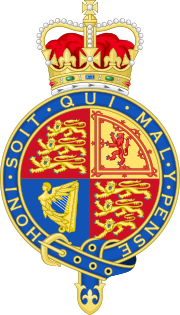Fort Frances Pulp and Paper v. Manitoba Free Press
| Fort Frances Pulp and Paper v Manitoba Free Press | |
|---|---|
 |
|
| Court | Judicial Committee of the Privy Council |
| Full case name | The Fort Frances Pulp and Paper Company Limited v The Manitoba Free Press Company Limited and others |
| Decided | 25 July 1923 |
| Citation(s) | [1923] UKPC 64, [1923] A.C. 695 |
| Case history | |
| Appealed from | Appellate Division of the Supreme Court of Ontario |
| Court membership | |
| Judges sitting | Viscount Haldane, Lord Buckmaster, Lord Sumner, Lord Parmoor, Lord Phillimore |
| Case opinions | |
| Decision by | Viscount Haldane |
| Keywords | |
| emergency powers | |
Fort Frances Pulp and Paper v Manitoba Free Press is a famous Canadian Constitutional decision of the Judicial Committee of the Privy Council on the "emergency doctrine" of the peace, order and good government power in the British North America Act, 1867.
During the First World War, through orders in council under the War Measures Act, the federal government of Canada maintained strict control on the supply and price of goods. After the war ended, these controls were continued in certain key sectors, including newsprint, under an order in council made on 20 December 1919. Controls on the supply and price of paper had been vested in the Paper Control Tribunal under an order in council made on 16 September 1918, and the Parliament of Canada subsequently passed an act in 1919 to place the Tribunal on a statutory footing, in order for it to complete its work on all outstanding issues arising prior to the declaration of peace.
The Manitoba Free Press, a Winnipeg newspaper publisher, purchased paper from Fort Frances Pulp and Paper. Orders made by the Paper Control Tribunal on 8 July 1920 provided for a reduction of the price that had been paid, representing margins in excess of the regulated price. The Manitoba Free Press brought an action against Fort Frances in the Supreme Court of Ontario to recover the specified amount. Fort Frances counterclaimed for an amount equal to the market price of the paper, less sums already paid.
At the Trial Division, Riddell J gave judgment for the plaintiffs, holding that the orders of the Tribunal were valid. The counterclaim was consequentially dismissed. He also noted that "all the powers of the Minister, Controller and Tribunal were intra vires and valid, even in a state of profound peace."
The trial judge's ruling was upheld on appeal to the Appellate Division, although they considered that the question was one of contract, as Fort Frances had issued invoices at the specified prices and the Free Press had paid them, on the basis that the prices were provisional and subject to orders to be made by the Paper Control Tribunal. As a result, it was not necessary to question the validity of those orders.
...
Wikipedia
